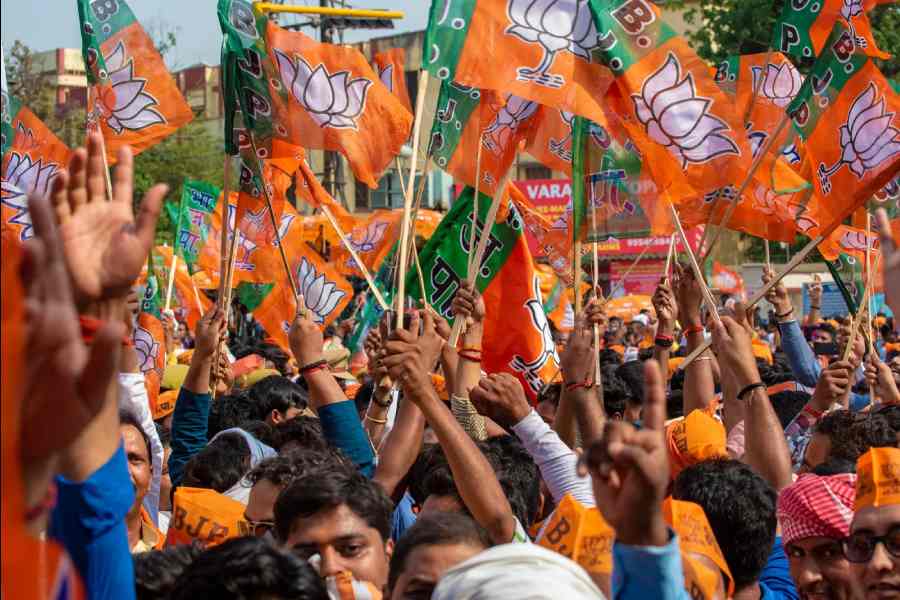Vinod Kumar, a security guard at a park maintained by the Delhi Development Authority (DDA), had his mobile phone pressed to his ear on Tuesday to listen to the election result updates.
As clarity began to emerge, he smiled and said the BJP needed to learn some lessons.
“I work for eight hours. My contractor gets Rs 17,000 every month from the DDA for paying me salary. He pays me Rs 9,000. This is going on in every DDA park in Delhi. The contractors are exploiting us and the Narendra Modi government is promoting contractual appointments,” Kumar said.
The BJP’s underwhelming performance in the Lok Sabha elections carries a message from the working class, several academics and workers said on Tuesday. The BJP got less than 250 seats, falling short of Prime Minister Narendra Modi’s assertion of the party winning 370 seats.
“My wife works in a shop also. Despite both of us working, we fail to buy books and study materials for our children. Who is responsible for that?” Kumar asked.
Kumar said the government and private organisations were increasingly hiring workers through third-party labour contractors.
In the private apartments, the security guards engaged through contractors get Rs 9,000 and they have to work for 12 hours a day for seven days a week.
“The salary has not increased for the last five years. There is no option other than working here,” said a security guard at Radhika Apartment.
Atul Sood, a faculty member at the Centre for Study of Regional Development, JNU, said the issues of price rise, unemployment and poorly designed welfare schemes had prompted the working class to search for new options.
“The working class had higher expectations from the Modi government because of the promise of ‘achhe din’. Looking at their daily life situation, they find there is no improvement. The welfare schemes such as free ration mean the government is giving certain survival support. The working class wants sustained income, which is not available,” Sood said.
He said the government had promised to double the income of farmers by 2022 but it did not happen. The government did not implement the report of the Swaminathan Commission. “The agrarian crisis is deep. The income of farmers did not increase. Agriculture remained a residual sector as no specific measure was taken to strengthen it,” Sood said.
He said jobless youths were equally disillusioned with the government. They are unhappy over schemes such as Agnipath and the increased contractualisation of jobs in both government and private sectors.










